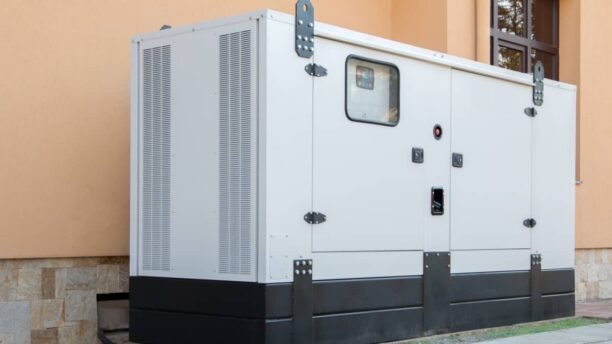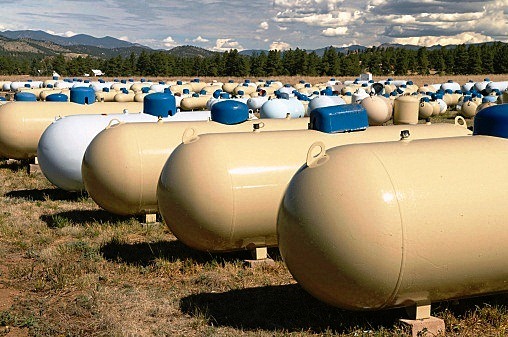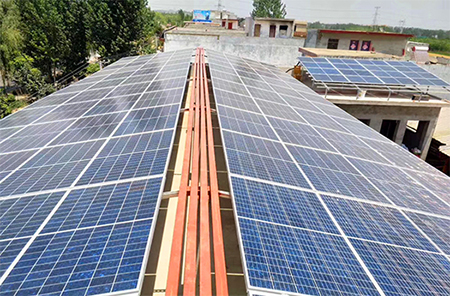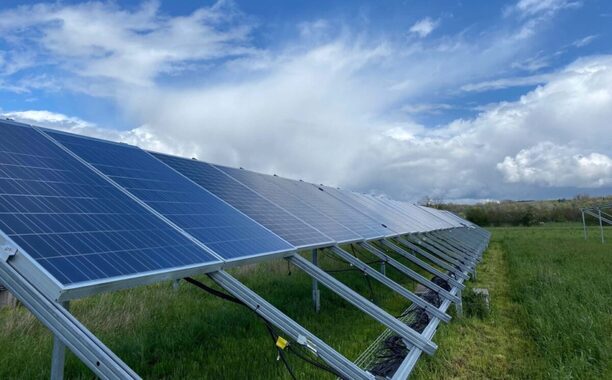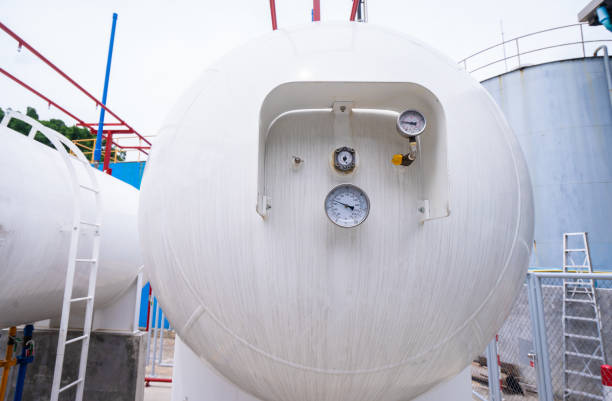In a heartwarming ceremony on Thursday, September 14, Lance Syrett, the general manager at Ruby’s Inn, located in Utah’s picturesque Bryce Canyon National Park, was bestowed with the prestigious “Energy for Everyone Hero” Award by Jim Bunsey, Director of Commercial Business Development at the Propane Education & Research Council (PERC). Distinguished industry leaders and prominent… Continue reading Ruby’s Inn at Bryce Canyon National Park Receives the PERC “Energy for Everyone Hero” Award
In a heartwarming ceremony on Thursday, September 14, Lance Syrett, the general manager at Ruby’s Inn, located in Utah’s picturesque Bryce Canyon National Park, was bestowed with the prestigious “Energy for Everyone Hero” Award by Jim Bunsey, Director of Commercial Business Development at the Propane Education & Research Council (PERC). Distinguished industry leaders and prominent editors had the privilege of touring Ruby’s Inn’s facilities, guided by Mr. Syrett himself and other representatives from the establishment. This enlightening visit offered valuable insights into the remarkable improvements Ruby’s Inn has made to achieve recognition as an Energy Hero.
Jim Bunsey, in his laudatory speech, emphasized the significance of Ruby’s Inn’s commitment to environmentally friendly products. He underscored that propane, a clean and sustainable energy option, plays a pivotal role in the inn’s sustainability efforts and daily operations, deployed across various large and small applications throughout the property.
Overcoming Challenges: Ensuring a Steady Flow of Hot Water
Ruby’s Inn, nestled in a small town with just 195 permanent residents, faces the colossal challenge of providing a consistent supply of hot water to the numerous hotel rooms spread across its 19-building resort. Especially during the peak tourist season from April to October, the property accommodates as many as 4,000 visitors nightly, many of whom arrive in tour groups.
The sheer volume of guests simultaneously utilizing hot water strained Ruby’s Inn’s existing water heater infrastructure, leading to frequent disruptions. To make matters worse, there was no redundancy system in place, meaning that when one of the boilers experienced downtime, it took nearly an hour to recover. Consequently, hotel guests often lodged complaints about hot water shortages.
Ron Harris, Ruby’s Inn’s Health and Safety Manager, with a quarter-century of experience at the establishment, shared his perspective on the matter, remarking, “Throughout the years, we’ve encountered various boiler problems. When a boiler malfunctioned, it resulted in a two-hour period without access to hot water for our guests. The level of dissatisfaction among our guests during these instances was quite significant. As a result, we were providing approximately $60,000 in annual discounts and refunds.”
The process undertaken by Ruby’s Inn to ensure a consistent hot water supply, minimize energy expenses, and eliminate the need for refunds was quite comprehensive. Notably, this endeavor marked the largest project undertaken by Rinnai, a prominent tankless water heater manufacturer, with the entire project being powered by propane. The resounding success of this project prompted Ruby’s Inn to integrate Rinnai appliances into various other applications. This achievement has also inspired similar businesses facing hot water challenges to adopt propane-fueled Rinnai appliances.
Ron Harris, while accepting the award, passionately recommended similar projects to other hotels, resorts, apartment buildings, hospitals, and penitentiaries grappling with hot water issues. His resounding endorsement echoed the transformative impact such initiatives can have on both customer satisfaction and sustainability.
Historical Parallels: Bryce Canyon National Park and Ruby’s Inn
Interestingly, the histories of Bryce Canyon National Park and the utilization of propane share some intriguing parallels, despite divergent trajectories and eventual convergence. It would be many years before the true value of propane as a primary energy source for Bryce Canyon became apparent.
In 1857, the same year French chemist Marcellin Berthelot discovered propane, Mormon pioneers had just arrived in the Salt Lake Valley, embarking on their exploration of the Utah territory in search of suitable lands for settlement and agriculture. Notably, the timeline for the discovery of propane and the early days of the Utah pioneers was strikingly concurrent.
The fascinating account of Ebenezer Bryce, a Scottish convert, and his wife Mary, who were initially tasked with building the Mormon temple in St. George, unfolds as a pivotal chapter in this narrative. In 1875, Ebenezer, Mary, and their ten children relocated from St. George to the upper Paria Valley, where they built a humble abode overlooking the canyon that would later bear Ebenezer’s name. The primary focus during these times was on securing food, shelter, and safety, leaving little room to appreciate the immense beauty of the canyon. In fact, Ebenezer had famously described it as “a hell of a place to lose a cow.”
In 1911, propane became commercially available as one of the liquefied petroleum gases (LP gases), marking the inception of propane utilization for home heating. Fast forward to 1916, and the indomitable spirit of Reuben “Ruby” and Minnie Syrett led them to leave their Panguitch, Utah home and embark on a journey to the edge of the Paunsaugunt Plateau. There, they homesteaded a quarter section of land and established their ranch.
Six weeks into their new life, a cousin and fellow rancher from Tropic paid them a visit and inquired about their acquaintance with Bryce Canyon. Ruby’s response, “No, what is it?” sparked a revelation. The cousin described it as “just a hole in the ground,” but insisted they should witness it for themselves. Upon their first encounter with Bryce Canyon’s breathtaking colors and unique rock formations, Ruby and Minnie were utterly captivated. From that day forward, they firmly believed that everyone should have the opportunity to behold its splendor.
Little did Ruby and Minnie Syrett know that their decision to settle near Bryce Canyon would culminate in a family legacy of providing hospitality to visitors from across the globe for generations to come.
The “Energy for Everyone Hero” Award bestowed upon Ruby’s Inn at Bryce Canyon National Park stands as a testament to the commitment of the establishment and its dedicated team to environmental sustainability and customer satisfaction. Their innovative approach to addressing hot water challenges with propane-powered solutions not only transformed their own operations but also served as an inspiration to similar businesses facing similar issues. This remarkable journey also serves as a reminder of the convergence of two historical timelines – the discovery of propane and of Bryce Canyon – each contributing in its own unique way to the quality of life for countless individuals.

